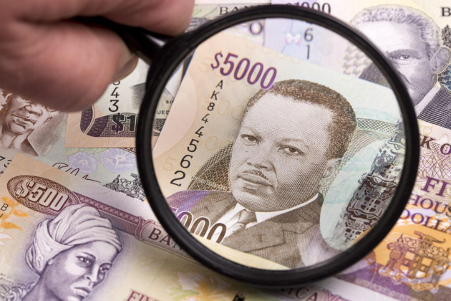As Jamaica joins several other countries in transitioning to a cashless economy, international financial experts are cautioning that this might not be in the best interests of consumers.
“In the coming weeks and days, I will be making certain announcements regarding the acceleration of Jamaica’s intention to become a fully digital society,” Prime Minister Andrew Holness announced earlier this month, while pointing to several strategies that have been implemented to make Jamaica digital.
“We have established the National Identification System (NIS). We have put in place our digital currency. We have given directions to our Ministries to digitalise their operations; most of our ministries are now moving from paper-based systems to digital systems,” he said.
“Our military is transitioning [as well as the Jamaica Constabulary Force]. The society is moving very quickly, very rapidly to become digital. Our banking consumers are seeing it, as well, because the banks are moving very rapidly to digital,” Holness added.
Those pushing for digital currency say it has several advantages over physical money. It will, among other things, speed up transaction payments and help fight money laundering. However, opponents warn that it could be a very effective instrument of government control.
Economist Pete Earle at the American Institute for Economic Research does not like the digital dollar.
“The ability to track transactions has a couple of elements that are very attractive to economic policymakers,” he was quoted as saying by CBN News. “One is to know where people are spending their money. Another is to track taxes.”
Physical money has been called one of the last bastions of privacy. Banking expert Nicholas Anthony at the Cato Institute explained, “As it stands, banks have really a ton of power that people don’t realise is to shut down accounts, to freeze accounts, and to end up holding them for really any number of reasons. And we don’t get to understand why, because there’s many cases in which they’re prohibited by law from saying what actually happened.”
Currency expert James Rickards told CBN News that the removal of cash would move countries like America closer to a totalitarian state.
Millions of dollars raised for truckers blocking roads to protest COVID-19 vaccine mandates were frozen by a Canadian court last year. When the Pakistani government was faced with almost nonstop protests last year, it threatened to switch off the bank accounts of the protestors.
“If I buy anything, the government doesn’t know it. But with this new central bank digital currency, they will, because they maintain the ledger,” Rickards explained.
Holness said he is aware that some people remain hesitant about embracing technology, but he is convinced that digital is the way to go. Jamaica now recognises its digital currency as legal tender with the introduction of JAM-DEX in 2022.
“No bank account is required to hold the digital currency, and you can get a digital wallet issued by a bank or authorised payment service provider with simple, customer-friendly processes for easy access,” the Prime Minister assured during his keynote address at the opening ceremony for the Jamaica Stock Exchange’s (JSE) 18th Annual Regional Investments and Capital Markets Conference at the Jamaica Pegasus earlier this year.
Some government ministers have also been promoting the use of digital currency. Minister of Justice Delroy Chuck urged justices of the peace (JPs) and other citizens to utilise the government’s JAM-DEX currency to help fast-track the transition to digital services. While speaking at a sensitisation session on the digital currency in March, Chuck said the government wanted to have everyone informed about JAM-DEX and promote its use island-wide.
“Technology is the way that we need to engage with in order to make progress in the country. Jamaica is falling behind in the technology revolution and I am hoping that the JPs who have joined us and all the JPs in fact, will assist and lead the way to ensure that we become not only a cashless society but a paperless society,” he said.
The minister hopes that within a matter of months, Jamaicans will no longer need cash to make their payments. He encouraged churches to make it possible for members to collect tithes and offerings using digital platforms.
“Until we can get more than 50 percent of our population using a cashless system, of which JAMDEX is an appropriate mechanism, then Jamaica will continue to fall behind,” Chuck said.
Up to February 18, 2023, there were 190,000 JAM-DEX customers onboarded by the digital payment wallet Lynk.






